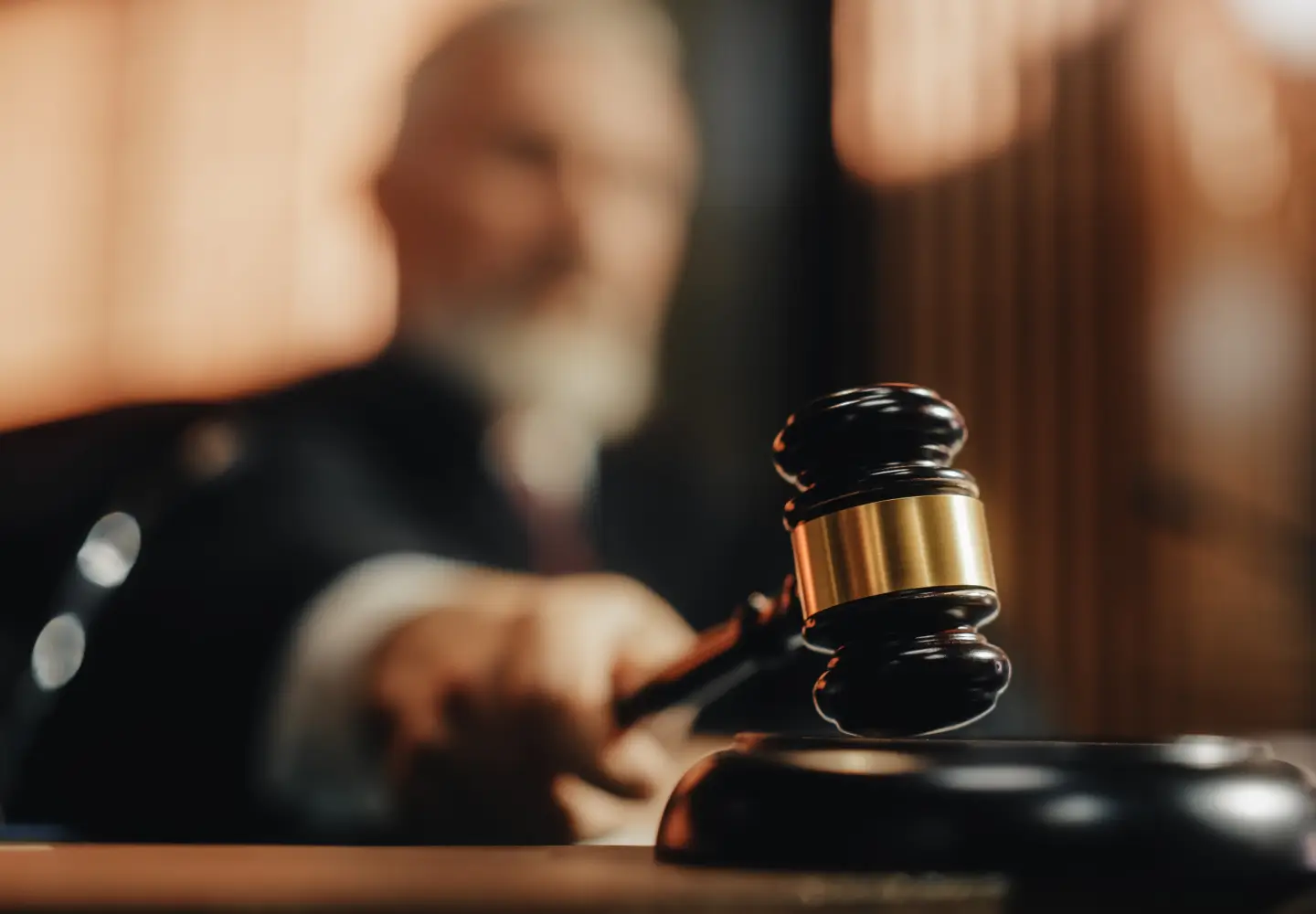What Does Disposition Mean in a Criminal Case
The disposition of a criminal case refers to the final resolution or outcome of the case. It determines how the case concludes and the consequences or penalties imposed on the defendant as a result of the charges. Understanding the different types of dispositions available in criminal cases and how they impact the defendant is important.
Outcomes of Criminal Cases
There are several potential outcomes or dispositions that can occur in a criminal case:
Dismissal
A dismissal of the charges means the case is terminated without a conviction. The prosecution may voluntarily dismiss the charges if there is insufficient evidence or some other reason the charges cannot be proven. The judge can also dismiss the charges on certain legal grounds. When charges are dismissed, the defendant is released from the obligation to appear in court and is free of any penalties associated with those charges.
Acquittal
An acquittal occurs when the defendant is found not guilty by the judge or jury after a trial. This decision essentially clears the defendant of the charges and releases them from any penalties. The double jeopardy clause prevents the defendant from being retried on those same charges.
Conviction
A conviction means the defendant was found guilty of the crime they were charged with. This can occur through a guilty plea by the defendant or by the judge or jury returning a guilty verdict after trial. A conviction exposes the defendant to potential penalties associated with the crime.
Deferred Adjudication
Deferred adjudication is an alternative disposition that allows the defendant to complete a period of community supervision in exchange for eventual dismissal of the charges if completed successfully. No formal conviction occurs unless the defendant violates probation and is revoked.
Common Dispositions in Criminal Cases
There are several common dispositions that may occur when a criminal case concludes:
Plea Agreements
The vast majority of criminal cases end through plea agreements negotiated between the prosecution and defense. The defendant pleads guilty, usually to a lesser charge, in exchange for a lighter sentence or dropped charges. This disposition avoids the time and expense of a trial.
Probation
Probation allows a defendant convicted of a crime to serve their sentence in the community under court supervision, rather than incarcerated. Conditions and length of probation are determined by the court. Violations may lead to revocation of probation and imprisonment.
Suspended Sentence
A suspended sentence imposes a term of incarceration, but suspends or postpones it as long as the defendant successfully completes a period of probation. This allows the defendant to avoid prison time if probation terms are fulfilled.
Restitution
Restitution requires the defendant pay money to compensate victims for losses caused by the crime. It is usually combined with other penalties like probation or a fine as part of the disposition.
Fines
Courts can impose monetary fines as punishment for criminal offenses. Fines are typically levied in addition to other sanctions like probation or incarceration, especially in misdemeanor cases. The amount depends on the severity of the crime and circumstances.
Incarceration
Jail or prison time is one of the most severe penalties imposed in criminal cases. The length of incarceration depends on the seriousness of the offense and sentencing guidelines. Short-term sentences often occur locally in jail, while longer sentences are served in state or federal prisons.
Death Penalty
The death penalty, where legal, remains an option for the most serious murder cases. It is an infrequently imposed disposition even where authorized. Extensive post-conviction appeals are typical in death penalty cases.
Diversion Programs
Some defendants may be offered diversion programs that allow them to avoid formal criminal charges and record upon successful completion. These are often offered to first-time or low-level offenders as an alternative to traditional prosecution.
The Plea Bargaining Process
Because most criminal cases end in plea bargains, it’s helpful to understand that process. Plea negotiations involve discussions between the prosecution and defense over potential plea agreements. Several things typically happen:
Charge Reduction
The prosecution may agree to reduce the original charges filed to lesser offenses as part of a plea deal. This guarantees a lower potential penalty range.
Sentence Recommendation
The prosecution commonly makes a non-binding sentencing recommendation to the judge as part of the bargain, such as recommending probation. This is contingent upon the defendant pleading guilty.
Dismissal of Counts
In cases with multiple charges, the prosecution may agree to dismiss some of the counts in exchange for a guilty plea on the remaining ones. This reduces the defendant’s overall exposure.
Agreement on Facts
The plea agreement may stipulate to certain facts of the case that form the factual basis for the guilty plea. This limits what facts can be considered at sentencing.
Limit on Sentencing Arguments
As part of a negotiated plea, the prosecution may agree not to seek certain penalties or argue for certain aggravating factors at sentencing that could increase the defendant’s punishment range.
Guaranteed Sentence
In some instances, the prosecution and defense agree to a binding plea deal that guarantees a specific sentence and imposes that sentence as part of the plea agreement. This provides certainty over the penalty.
The judge maintains ultimate discretion whether to accept the terms of a negotiated plea agreement between the parties. Plea deals avoid the risks and costs of trial while providing a degree of certainty over the final disposition.
How a Plea Deal Impacts the Defendant
Defendants should carefully weigh the impacts of accepting a plea offer, including:
Conviction on Record
Pleading guilty results in a conviction that becomes part of the defendant’s permanent criminal record. This can impact future employment, housing, and other opportunities.
Loss of Appeal Rights
By pleading guilty, the defendant forfeits their right to appeal pre-trial decisions that may have provided defenses or challenged evidence in the case. The only option for appeal after a plea is very limited.
Admission of Guilt
A guilty plea involves openly admitting guilt in court to the criminal offense. The defendant gives up the right to maintain their innocence. Any statements made may be used in future prosecutions.
Loss of Trial Rights
The defendant gives up constitutional rights associated with trial by pleading guilty. This includes the right to have the prosecution prove guilt beyond a reasonable doubt before a jury.
Impact of Actual Innocence
An innocent defendant who pleads guilty due to the offer may nonetheless be convicted and punished for a crime they did not commit with limited recourse.
Unpredictable Judge Discretion
While a plea deal may recommend a particular sentence, the judge has discretion to issue any sentence up to the legal maximum. A judge may issue a harsher sentence than anticipated.
Effects of Violation
If probation or diversion programs are imposed and violated, more severe consequences including incarceration may result under the plea terms.
Immigration Consequences
A guilty plea may carry immigration consequences for noncitizen defendants, including deportation and barriers to re-entry or naturalization.
Civil Liability
Admissions made in a plea agreement can be used as evidence of liability in potential future civil cases seeking damages related to the criminal acts.
Reputational Harm
A criminal conviction, even for a minor offense through a plea deal, creates a public record that can damage the defendant’s reputation in their community and relationships.
When a Plea Deal May be Rejected
In some instances, it may benefit the defendant to reject a proposed plea bargain and proceed to trial, such as:
Overcharges by Prosecution
If the charges and penalties substantially overstate the seriousness of the actual offense, the defendant may receive acquittal or conviction on a lesser offense at trial.
Weak Prosecution Evidence
A plea deal that requires admitting guilt or serious penalties may not be justified if the prosecution’s case has major flaws making acquittal at trial likely.
Disproportionate Sentence Offered
The plea terms may involve overly harsh sentencing recommendations that are disproportionate compared to the offense and circumstances.
Maintaining Innocence
Defendants unwilling to admit guilt despite plea incentives may proceed to trial to definitively establish their innocence through acquittal.
Publicity Incentives
High profile defendants may reject otherwise favorable deals to take the case public through trial for personal reasons.
Appealable Issues Exist
If there are compelling issues to raise on appeal before entering any plea, those appeals could lead to dismissal later so it may be better to go to trial first.
Coercion Concerns
When pleas appear coerced or involuntary rather than the product of the defendant’s free will, there are grounds to reject the deal.
A defendant should carefully weigh all options, with counsel, when considering a plea offer by assessing the proposed terms, strength of the case, potential consequences, and their own circumstances to determine if accepting the disposition through a plea or proceeding to trial is preferable.
When Does a Plea Deal Occur
Plea negotiations tend to occur at certain stages:
Pretrial Negotiations
Plea discussions often begin after charges are filed but before additional evidence and defenses are presented at preliminary hearings and filings. Offers are often more favorable to defendants during this stage.
After Pretrial Motions
If the prosecution’s case survives dismissal and evidentiary challenges raised through pretrial motions, they may offer less attractive deals before proceeding further.
After Discovery
Plea offers may change after each side has the opportunity through discovery to assess the strength of the other’s case based on evidence obtained. Stronger cases lead to harsher plea offers.
Before Trial
As the parties invest time and resources preparing for trial, a plea agreement becomes attractive to save costs. Final negotiations often occur days before trial is set to commence.
During Trial
In rare instances, plea discussions resume during trial if it becomes apparent the case is going poorly for one side or the other, leading them to reconsider the risks of proceeding further.
After Conviction
After conviction at trial, the defendant may be offered a plea deal in exchange for avoiding an appeal of the verdict, ensuring finality.
The most favorable plea offers for defendants tend to occur early in the pretrial process before substantial resources are invested in trial preparation. However, the viability of potential defenses and weaknesses in the case may not be fully known at that point.
Common Criminal Case Dispositions
Looking at typical outcomes across different common criminal offenses helps provide a sense of the plea deals and sentences imposed in practice:
Drug Possession
Simple possession charges often end in diversion programs, suspended sentences, or probation with required drug treatment. Plea deals avoid jail except for repeat offenders.
DUI/DWI
Diversion programs, fines, license suspension, and probation with alcohol education are common first-time dispositions. Jail sentences are brief unless there is serious injury or repeat offense.
Assault
Serious assault charges usually end with sizeable prison time after trial convictions. But plea bargains often impose short jail terms or probation for lesser assault offenses without major injury.
Burglary
Sentences tend to depend on criminal history. First-time offenders may get probation with restitution through pleas, while repeat offenders face longer incarceration.
Drug Distribution
Distribution charges for small amounts may lead to plea deals with probation or short jail sentences. Major distributors often receive years in prison after conviction at trial.
Theft
Plea deals for minor theft often result in probation, restitution, and community service. Harsher prison terms are imposed for major theft crimes like robbery, burglary, and embezzlement.
Domestic Violence
Cooling-off periods, counseling, probation, and classes are common for first pleas. Jail time is likely for serious injury, use of weapons, or repeat offenses despite plea deals.
Sex Crimes
These charges lead to lengthy prison sentences after conviction at trial. Plea bargains may impose slightly shorter periods of incarceration and probation.
As these examples show, plea bargaining allows most defendants to avoid the harshest potential sentences, but defendants still face significant consequences through typical plea dispositions in criminal cases.
How a Jury Trial Could Impact the Outcome
In some circumstances, the decision whether to accept a plea or proceed to a jury trial can significantly impact the final outcome and penalties faced in a criminal case:
Reasonable Doubt
At trial prosecutors must prove all elements of the charge beyond a reasonable doubt, a higher standard than at plea deal negotiations. This provides opportunity for acquittal despite strong evidence.
Jury Leniency
Juries may exercise leniency, finding the defendant guilty of lesser charges than those brought by the prosecution. A plea deal involves agreeing to the charges as filed.
Witness Credibility
Juries determine witness credibility and what version of disputed facts to believe. This assessment could undermine the prosecution’s case leading to a not guilty verdict.
Exclusion of Evidence
The judge may preclude prejudicial evidence from trial that the prosecution planned to use to obtain a harsher plea deal. Without that evidence, the case could be weakened.
Sentencing Discretion
Unlike plea agreements that bind the penalties imposed, judges have wider discretion to impose any legal sentence after trial. This flexibility could result in less harsh sentences.
Mandatory Minimums
Certain offenses carry mandatory minimum sentences that prosecutors use as leverage in plea negotiations. But acquittal on those charges at trial avoids mandatory minimums.
Public Attention
The public spotlight and scrutiny over the prosecution’s case during a public trial could reveal improprieties or weaknesses influencing the outcome.
While plea deals provide certainty, the dynamics of trial provide many opportunities for defendants to end up with better dispositions through verdicts than they may have obtained solely through negotiation.
How the Original Charges Impact Plea Deals
The offenses and number of charges alleged by prosecutors substantially impact the dynamics of plea negotiations:
Multiple Charges
Additional charges give prosecutors leverage through higher potential sentences and ability to dismiss counts in exchange for a plea on others. But they also provide opportunities for acquittals.
Sentence Enhancements
Enhancements like weapon allegations ratchet up potential sentences and incentive to plead guilty. But acquittal on enhancements at trial significantly reduces sentencing exposure.
Mandatory Minimums
Offenses with mandatory minimum sentences force defendants to decide between pleading to avoid the minimums or gambling on acquittal at trial.
Misdemeanors vs. Felonies
Due to less severe sentences, misdemeanor charges typically result in fines, probation, or short jail time through pleas. But felony potential sentences provide incentives to plead to greatly reduced charges.
Nature of Offenses
The stigma and consequences associated with particular charges like sex crimes, even if exaggerated, may compel defendants to plead rather than face public trial.
Strength of Evidence
The perceived strength of evidence influences whether pleas involve reduced charges/sentences or reflect the full charges brought if conviction seems assured.
Defendant’s Criminal History
Prior convictions may enhance potential sentences and give prosecutors leverage in demanding harsher plea deals compared to first-time offenders.
While experienced criminal defense counsel can negotiate charge reductions and advantageous plea terms in many cases, the nature and severity of original allegations broadly shape the landscape of plea discussions and options.
Conclusion
The disposition of a criminal case has important implications for the rights, freedom, and future of the accused. Plea bargaining has become a dominant means of resolution, with over 90% of convictions obtained through guilty pleas rather than trials. Understanding the plea negotiation process, weighing options like going to trial, and assessing original charges allows defendants to make informed choices about how best to reach an outcome that limits convictions and consequences. While certain dispositions like dismissals and acquittals offer the most favorable outcomes, factors like strength of evidence, sentencing exposure, cost of trial, and risks of conviction also influence available options. Defendants should carefully review their circumstances under guidance of effective counsel before agreeing to any disposition.
Frequently Asked Questions
Q: What is the difference between a dismissal and a plea bargain?
A: A dismissal terminates the charges against the defendant without a conviction. A plea bargain results in the defendant pleading guilty, typically to reduced charges, in exchange for sentencing recommendations and benefits from the prosecution. A plea leads to a conviction.
Q: Can a judge reject the terms of a negotiated plea agreement between the defense and prosecution?
A: Yes, the judge has discretion whether to accept or reject the sentencing recommendations and other terms in a plea agreement. The judge is not obligated to abide by the negotiated settlement.
Q: Can a defendant withdraw their guilty plea before sentencing?
A: In most states, defendants have a limited ability to file a motion to withdraw a guilty plea before sentencing, usually by showing it was unknowing or involuntary. But this is difficult and rarely permitted without good cause.
Q: What happens if the defendant violates the terms of a plea agreement?
A: If the plea terms are breached by the defendant, through actions like failing to appear at sentencing or violating probation, the prosecution is no longer bound by the sentencing recommendations and other limits in the plea deal.
Q: What is the difference between a plea bargain and a nolo contendere plea?
A: A plea bargain involves pleading guilty in exchange for concessions by the prosecution. A nolo contendere plea (no contest) does not expressly admit guilt but concedes the evidence is sufficient for conviction and accepts punishment.








